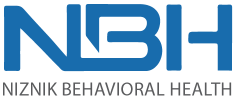How Addiction Affects the Brain
Overcoming addiction is a difficult journey through which various aspects of one’s life are altered. We are motivated to resist addiction so that we can improve our relationships, our finances, and our overall health. Our minds and bodies struggle with addiction; knowing how substances interact with our bodies will give us an advantage toward achieving sobriety. The human brain is the body’s multiplex organ. Substance use alters the way our brain communicates with our body.
How the Brain Communicates
The brain is comprised of an intricate network of billions of cells called neurons that send and receive messages. Neurons communicate with one another by releasing chemicals called neurotransmitters. When a neuron wants to send a message, it releases a neurotransmitter. The neurotransmitter travels along a synapse, connection between two neurons, and attaches to the receiving cell. Information is released to the receiving cell. Once the message is received, molecules called transporters bring the neurotransmitter back to the neuron from which it was released. These communications via neurotransmitters occur throughout the brain innumerably and also throughout the body by way of the peripheral nervous system. Addictive substances alter the manner in which messages are relayed in the brain by disrupting the function of neurotransmitters.
Substances Alter the Brain’s Natural High
Substance use generates a feeling of euphoria. Our brains produce a neurotransmitter called dopamine that naturally conjures intense pleasure. When we partake in an enjoyable activity such as eating, socializing, or sexual intercourse our brain responds by releasing dopamine and we experience a natural high. Addictive substances trigger our brain to release unnaturally large levels of dopamine, thereby intensifying our pleasure response. As a result of substance use, our natural response to pleasure becomes reduced, neurotransmitters become less receptive and our brain develops a tolerance. Soon, we are no longer able to achieve a sufficient, natural high without the use of substances.
In addition to dopamine release, our brains learn to associate exterior cues with pleasurable activities. For instance, you may associate an event complex with socialization and crave attending the next occasion. When substances influence your pleasure response, for example, your brain learns to associate paraphernalia with the response and you crave the substance upon sight of the paraphernalia. Other exterior cues may include people or locations.
Brain Recovery
A brain that has been influenced by substances has a high tolerance for pleasure response; the basal ganglia section of the brain becomes over-reactive with euphoria. When we withdrawal the substance, our normal pleasure response becomes less intense and we feel less joy when experiencing previously gratifying situations. The area of the brain called the extended amyg of the brain are affected and our impulse control becomes challenged. Abused substances have reconstructed the communication patterns between neurons, challenging our brains and bodies to resist something that now helps us to feel wonderful. Overcoming addiction enables your brain to begin to repair itself.
Let us help.

